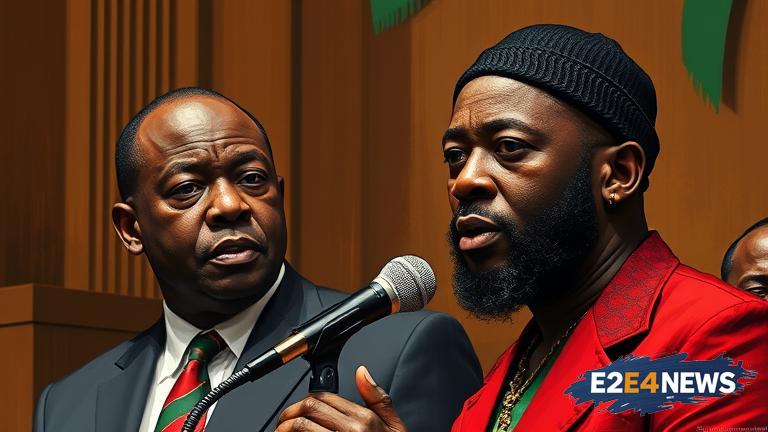In a landmark ruling, the South African court has determined that Kunene’s statement, in which he referred to Malema as a ‘cockroach’, constitutes hate speech. This decision has significant implications for the country’s freedom of speech laws and the limits of acceptable language in public discourse. The court’s ruling is based on the understanding that hate speech is defined as any communication that is intended to degrade, humiliate, or intimidate a person or group based on their identity, including their race, ethnicity, or political affiliation. In this case, the court found that Kunene’s use of the term ‘cockroach’ to describe Malema was a clear example of hate speech, as it was intended to dehumanize and degrade him. The ruling has sparked a heated debate about the balance between freedom of speech and the need to protect individuals and groups from hate speech. Some argue that the ruling infringes upon the right to free speech, while others see it as a necessary measure to prevent the spread of hate and intolerance. The case has also highlighted the complexities of defining and regulating hate speech in a democratic society. The court’s decision is likely to have far-reaching consequences for South African politics and public discourse, as it sets a precedent for what constitutes acceptable language in public debate. Malema, the leader of the Economic Freedom Fighters (EFF) party, has been a vocal critic of the ruling party and has often been the target of verbal attacks and insults. The EFF has welcomed the court’s ruling, stating that it is a victory for the fight against hate speech and racism. However, others have expressed concern that the ruling could be used to silence critics of the government and stifle free speech. The case has also raised questions about the role of social media in spreading hate speech and the responsibility of individuals and platforms to regulate online content. As the debate continues, it is clear that the court’s ruling will have significant implications for South African society and politics. The ruling is a reminder that words have power and can be used to harm or heal, and that it is essential to consider the impact of our language on others. The case has also highlighted the need for greater education and awareness about the dangers of hate speech and the importance of promoting tolerance and respect for diversity. In conclusion, the court’s ruling is a significant development in the ongoing debate about hate speech and freedom of speech in South Africa. While some may see it as an infringement upon the right to free speech, others view it as a necessary measure to protect individuals and groups from harm. As the country continues to grapple with the complexities of regulating hate speech, it is essential to consider the potential consequences of our words and actions. The ruling is a reminder that the fight against hate speech and intolerance is ongoing, and that it requires the efforts of individuals, communities, and institutions to promote a culture of respect, tolerance, and inclusivity. The court’s decision is a step in the right direction, but it is only the beginning of a longer conversation about the importance of responsible language and the need to protect vulnerable groups from harm. Ultimately, the ruling serves as a reminder that our words have the power to shape our society and our relationships with others, and that it is our responsibility to use language in a way that promotes understanding, respect, and inclusivity.
